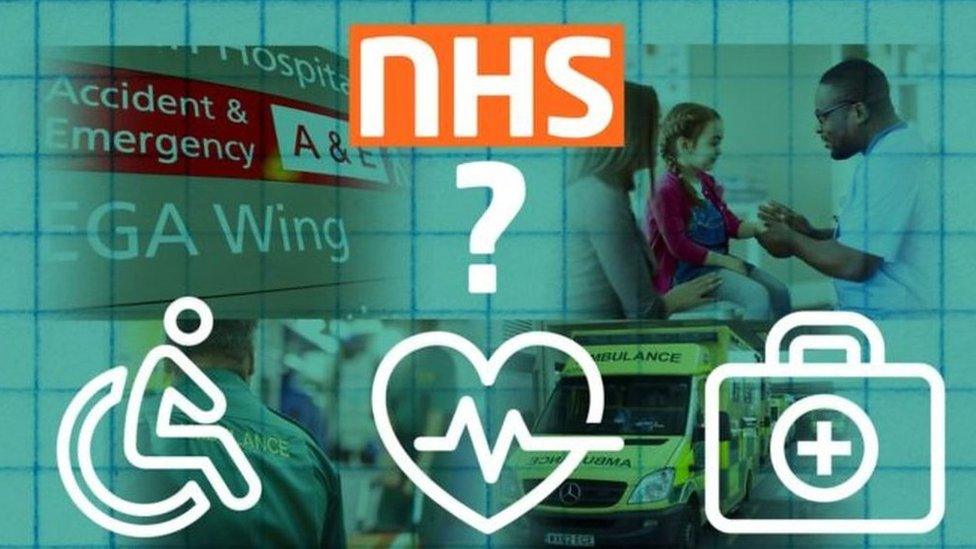NHS: Will this winter be even worse?
- Published

Will there be a bleak winter for the NHS?
A cycle of perpetual winter crises and the NHS running on empty - these are the latest warnings coming from groups in England representing hospitals and doctors.
That sounds rather familiar for this time of year.
But the thought that things could be even worse this winter will be a cause for concern for ministers.
The theme of the two latest missives is that the NHS has been running flat out over the summer.
Performance at A&E units in England has slipped below where it was in the same months last year.
Waiting lists for non-urgent surgery have grown - there are nearly 120,000 more patients in England than a year ago who have waited more than 18 weeks.
Targets for routine operations and waits for cancer treatment are being repeatedly missed.
And all this has happened before winter has arrived.
If you can't see the NHS Tracker, click or tap here, external.

Hospital waiting list in England highest since 2007
NHS therapy service failing in one in seven areas
Nick Robinson: 'Let's be honest about the NHS'
The underlying factor here is that demand for care by patients is rising faster than the money and resources available to the NHS.
Dr Nick Scriven, President of the Society for Acute Medicine, sums up the situation as he sees it: "Even in summer we are seeing a steady rise in the number of people needing hospital admission year-on-year - more than 5% in 12 months - and no real change in the services available for them. It's not sustainable."
He says his members - who are doctors dealing with emergency cases after arrival at A&E - are reporting even greater pressure than a year ago, with a higher number of very sick patients.
The latest report from NHS Providers, representing hospitals and other trusts in England, says the stress on the service will be even worse this winter than the last one, during which there was the severest flu strain in seven years and routine surgery had to be postponed for two months.
Staff shortages
The group argues that the NHS is "trapped in a perpetual series of winter crises".
Workforce shortages, according to NHS Providers, are among the main concerns.
In the summer there were more than 107,000 vacancies in the service, and trusts believe recruitment and retention of staff will get even harder in the winter.
The report says in some parts of England there is a shortage of endoscopists, clinicians who carry out internal body examinations using small cameras.
Referring to some trusts, it adds: "The risk to services… and the potential impact in terms of diagnostic and cancer performance is so serious that they have had to bring in an independent endoscopy service at a much higher cost".
So what about the extra money promised by the government? That, as always, needs some disentangling.
In the autumn Budget last year £337m was awarded to the NHS in England to cope with immediate winter pressures. Most of that went straight to hospitals.
In the same Budget package, an extra £1.6bn was allocated for the current financial year, which began in April.
But NHS Providers argues that this has been swallowed up in general budgets rather than specific winter planning, and they have been told they should not expect any further cash injection.
The Health and Social Care Secretary Matt Hancock has within the last couple of months made two financial announcements for England.
There will be £240m for social care packages, external to facilitate transfers of patients out of hospital and £145m for investment in A&E units, external.
Hospital trust leaders have welcomed these measures but pointed out they are ring-fenced and not for the day-to-day running of frontline services.
A Department spokesperson noted that as with last winter, the NHS would have the benefit of "better, enhanced, national-level planning".
Longer-term there was a funding commitment to put the health service on a "sustainable footing". The NHS will get an extra £20bn a year by 2023.
The problem for Matt Hancock is that the long term begins next April with the start of the new funding stream promised by Theresa May.
Before then he has his first winter to contend with.
And, as previous Health Secretaries knew only too well, it's hard to change much from Whitehall once the chill sets in.